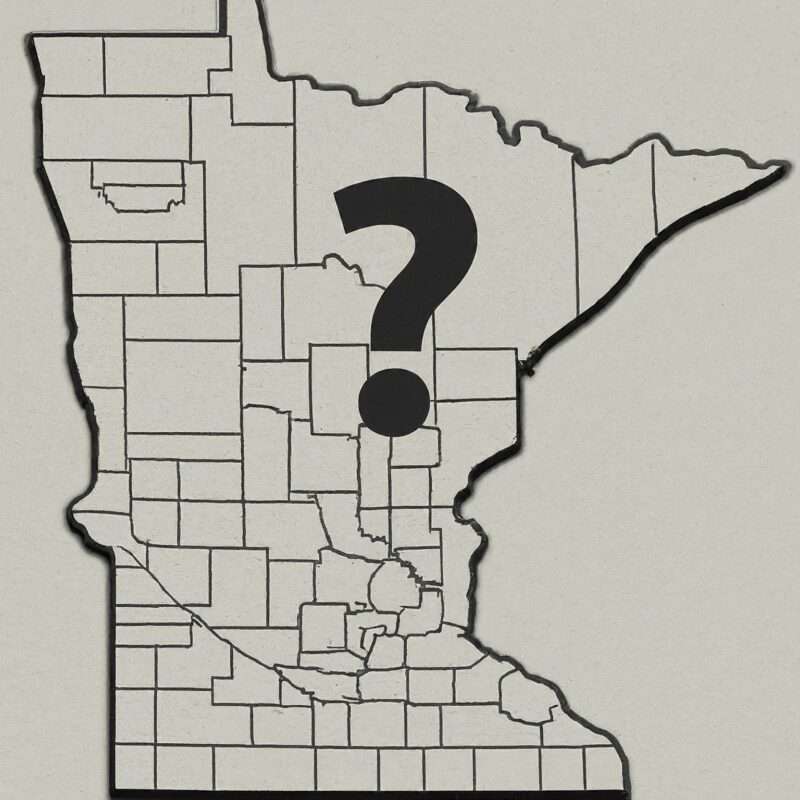What County Should I File For Divorce In?
UPDATED: APRIL 2014
I often get asked this question!
SPOILER: You can file for a divorce in the county where you or your spouse lives. But, as if often the case in the law, there’s more to it than a simple answer. Keep reading for more information!
If you or your spouse has lived in Minnesota for at least 180 days you can file for a divorce in Minnesota. This leads to the next question, what county can (or should ) I file for divorce in? If you and your spouse reside in different counties, then Minnesota lets you pick which county you want to file for divorce in.(If you want to read the law it’s here). This can lead to an interesting question of which county to file for divorce in.
- please note this is only for divorce! if you are not married but are filing a paternity action then it’s the county the child lives in.
Metro Area vs. Non-Metro Area County
First, let’s define exactly what I mean when I say “Metro Area”. I generally mean Hennepin, Anoka, Ramsey, Washington, Carver, and Dakota. Non-Metro, means just that, all the other counties in Minnesota! So if you live in Blue Earth or Olmstead county you would be considered a Non-Metro area county.
If this situation applies to you, it’s a difficult one. If you live in Blue Earth County and your spouse lives in Hennepin County, this is a huge decision. The reason is the process and timing are different for metro counties vs. non-metro counties.
Hennepin county cases are heard in Minneapolis at the Family Justice Center (Downtown) and usually it can take longer to get in to your hearing, you have the unpleasentness of going to getting parking and going Downtown Minneapolis. In Metro counties, a Referee, similar to a limited Family Law Judge, is commonly used. However, most non-metro counties do not utilize this practice. One exception is Olmstead County where Referee Felton holds court.
Another factor to look at is will a Metro Area judge know the area? For example, if you live in Rochester and work at the Mayo Clinic, yet your husband moved to St. Paul, will a Ramsey County judge be able to understand the community? The schools or any of that? It’s unlikely they will be as familiar as they could be.
One interesting note that I’ve observed after doing this for over 24 years, is that Outstate judges are less likely to award attorney fees than Metro area judges. Now, I don’t have the statistics to back this, but I can tell you what I have seen and that is that Metro Area Judges are more likely to award fees.
Alimony and spousal support is another area where it’s a bit different depending on which part of the state you live in. This issue probably deserves another article!
Child custody, child support, and child support usually are the same and in my opinion, isn’t worth fighting about which county this matter should be heard in.
Whomever Files For Divorce First Picks The County
Generally, the Petitioner in the divorce gets to pick the county. This is not always true, as it’s possible to argue over what is called “Venue”, that is the actual location of the divorce. If for some reason it makes more sense to have the divorce in one county over other it’s possible to argue the venue is inconvenient. This is fairly rare, but it is possible.
You want to be a bit careful about fighting here though. It’s possible to spend a lot on attorney fees just to determine the venue and you don’t want to spend too much mony when you are just starting the divorce.
Does it really matter in which county you get divorced?
This is probably the best question to ask. Does it really matter, especially if you live in similar counties such as Nicollet or Brown county?
The short answer is probably not. It’s a matter of control and of convenience to pick the county to have your divorce in.
Some people might tell you it’s important because you get to pick which Judge will hear the case, but as my last post describes, that’s only sometimes true. Talk to your lawyer and see what he or she thinks about it. Don’t be afraid to ask questions about your case.
So, you stumbled upon mankatofamilylaw.com, huh? Well, brace yourself for some nuggets of wisdom about Minnesota Family Law. But hold your horses! Before you start drafting your next court battle strategy based on what you read here, remember this: It’s not legal advice, folks! Mr. Kohlmeyer, our Minnesota licensed Attorney, can’t wave his legal wand outside of the Land of 10,000 Lakes. So, if you’re itching to have him as your legal guru in your Family Law saga, give us a call at 507-625-5000. We’ll make sure you’re properly Minnesotified!



Comments 2